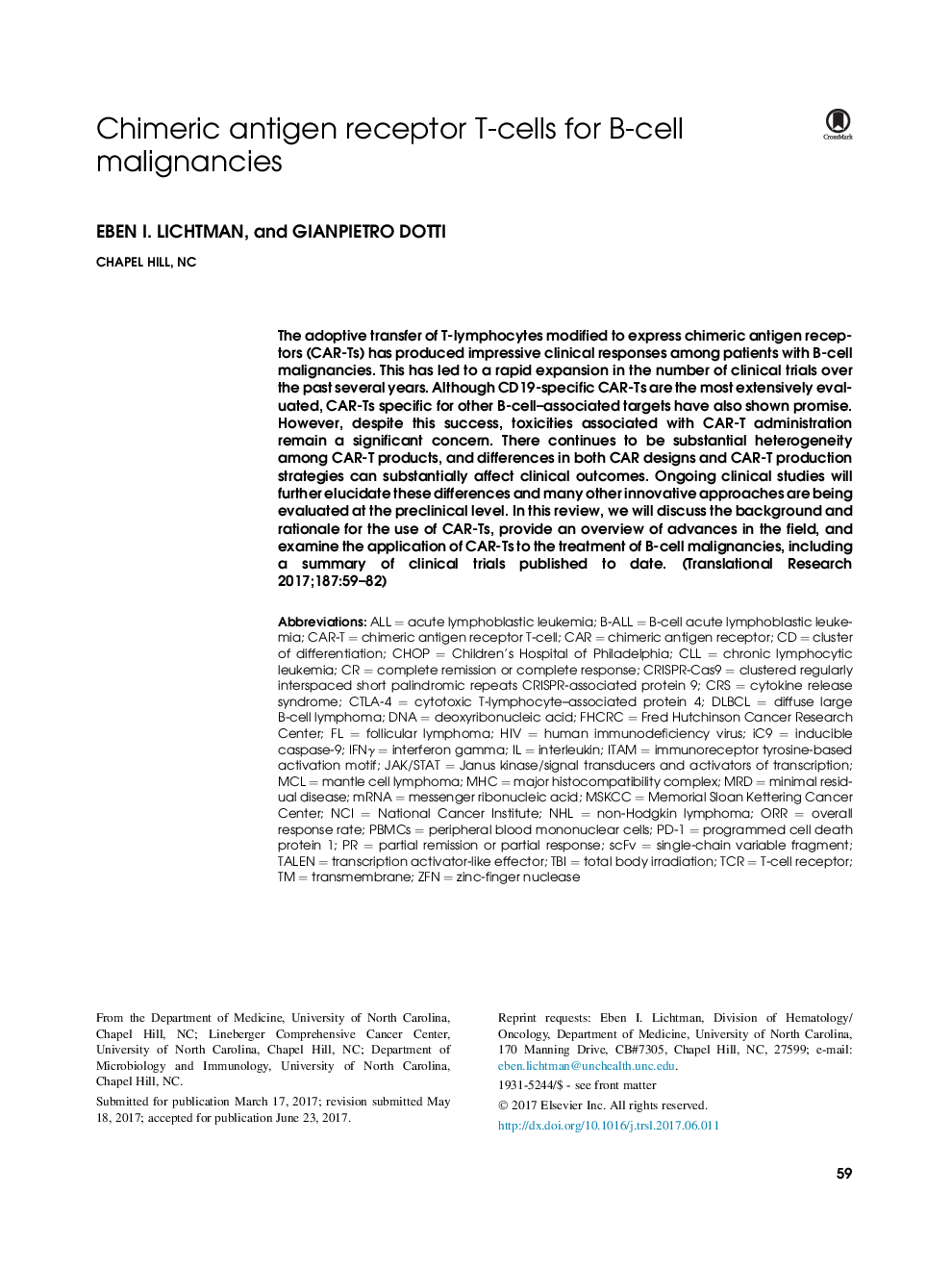| Article ID | Journal | Published Year | Pages | File Type |
|---|---|---|---|---|
| 5684963 | Translational Research | 2017 | 24 Pages |
Abstract
The adoptive transfer of T-lymphocytes modified to express chimeric antigen receptors (CAR-Ts) has produced impressive clinical responses among patients with B-cell malignancies. This has led to a rapid expansion in the number of clinical trials over the past several years. Although CD19-specific CAR-Ts are the most extensively evaluated, CAR-Ts specific for other B-cell-associated targets have also shown promise. However, despite this success, toxicities associated with CAR-T administration remain a significant concern. There continues to be substantial heterogeneity among CAR-T products, and differences in both CAR designs and CAR-T production strategies can substantially affect clinical outcomes. Ongoing clinical studies will further elucidate these differences and many other innovative approaches are being evaluated at the preclinical level. In this review, we will discuss the background and rationale for the use of CAR-Ts, provide an overview of advances in the field, and examine the application of CAR-Ts to the treatment of B-cell malignancies, including a summary of clinical trials published to date.
Keywords
CAR-TIFNγNHLMSKCCDLBCLCLLPBMCsFHCRCITAMB-ALLMRDCRSMCLTCrscFvZFNCRISPR-Cas9TBImRNAORRPD-1Fred Hutchinson Cancer Research CenterCTLA-4NCICytotoxic T-lymphocyte–associated protein 4transcription activator-like effectorDNAJAK/STATdeoxyribonucleic acidTotal body irradiationinterleukinChildren's Hospital of PhiladelphiaCHOPMinimal residual diseasecluster of differentiationmessenger ribonucleic acidTALENperipheral blood mononuclear cellsCytokine Release Syndrometransmembranesingle-chain variable fragmentDiffuse large B-cell lymphomaMantle cell lymphomaNon-Hodgkin lymphomaFollicular lymphomaB-cell acute lymphoblastic leukemiaAcute lymphoblastic leukemiaChronic lymphocytic leukemiaCARMHCmajor histocompatibility complexMemorial Sloan Kettering Cancer CenterNational Cancer Instituteimmunoreceptor tyrosine-based activation motifoverall response ratezinc-finger nucleaseALLhuman immunodeficiency virusHIVprogrammed cell death protein 1janus kinase/signal transducers and activators of transcriptionInterferon gammachimeric antigen receptorT-cell receptor
Related Topics
Health Sciences
Medicine and Dentistry
Medicine and Dentistry (General)
Authors
Eben I. Lichtman, Gianpietro Dotti,
